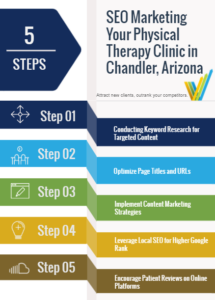How many times have you heard “SEO is dead?”
Seems like everyone says that these days. While SEO has changed so much from even just a couple years ago that it’s barely even recognizable, it was, is, and always will be important for ranking your website.
Google needs some way to identify how to rank your website, which keywords to rank it for, and why it might be better or worse than other sites. So that’s what the SEO game’s all about: helping Google understand where to put your website in its search index.
Take a look at a few of these easy, oh-so-simple ways to make sure you’re not losing your rankings unnecessarily:
- Keyword Placement
The keyword you want your page to rank for should be in the page title, ideally at the beginning. That’s the biggest on-page optimization signal Google needs to see.
In addition to that, it should appear in your URL, in the page <H1> tag, and then 2-4 times in the body copy and additional <h2> tags. There’s no “perfect” formula here. As long as you have your keyword in those areas, though, Google knows what you want to rank for.
- Your Primary Pages Don’t Have Links Pointing to Them
Your home page gets most of your links – that’s just what people logically think to link to. However, to rank any page, you should have at least a few (3+) high-authority links pointing to those pages.
The easy part is knowing you have to do this (your competitors often don’t and often have 0 links pointing to their main services pages). The hard part is earning those links – and that’s where professional help does its magic.
- You Don’t Write Content Regularly
There’s varying opinions on how much content helps your rankings. Some SEOs tell you 50%, others 75% or more.
The percentage doesn’t matter, but you get the point: you must have monthly content posted on your website. This is an especially huge advantage at the local business level, where many do not update their content often enough (or at all).
What do you need? Right now, I recommend 2 400-500 posts per month at minimum.
It’s nicer to have 4-5 (your readers like 1 per week), but not absolutely necessary. An aggressive strategy uses 8 per month, and some hyper-aggressive businesses even post daily.
It’s all about your budget and comfort zone.
- You Don’t Use Schema Meta-Data
Simply put, Schema is a set of HTML tags you use to enhance your SERP listings. There’s conflicting evidence as to whether it improves your search rankings.
However, Search Engine Land did find 30% more traffic from click-throughs for websites that use it. You can easily implement schema into your WordPress website with the WordLift plugin.
And here’s a secret: almost no websites use it – a huge competitive advantage for you!
If you address those issues, it’s pretty easy to get your rankings back or take them to new heights!






